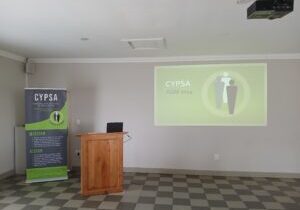In the Pretoria High Court Case, Professor Nutt has vehemently defended the use of dagga as a safer alternative, continuously comparing it with the harms of tobacco and alcohol. He has also stated that should cannabis be legalized, alcohol consumption will drop.
On being challenged with the findings of other experts such as Professor Bertha Madras and Professor Robin Murray, as well as those of the World Health Organization and the World Drug Report (2017), Nutt kept on reverting to his scale of “comparative harms.” Nutt’s scale of “comparative harms” was formulated after a one-day caucus which included many experts who were in fact some of his previous colleagues. Their findings rated alcohol as the most dangerous drug, while dagga (cannabis) scored much lower.
While compared to alcohol, the overall harms of cannabis may indeed be less, however this is not a realistic way of looking at the harms of dagga on the individual and our South African society. Now ten years after its inception, Nutt’s MCDA-model is being referred to as inadequate by other scholars. The model does not take poly-drug use, potency and frequency of use into account. Nutt is neither an expert on the challenges of drug use within the South African context, nor on the complex drug scene within our cities and townships.
Furthermore, Harvard University together with John Hopkins University state in the SAMS report of October 2016, “though it is still early, these “experiments” in [dagga] legalization are not succeeding.”
The SAMS report further states that the outcomes in Colorado and Washington paint a vastly different reality to that which Professor Nutt wishes us to believe in:
- There are rising rates of cannabis use by minors
- Increasing arrest rates of minors, especially black (+58%) and Hispanic (+29%) children
- More accidents (155%), injuries (185%), absenteeism (178%) and disciplinary problems (155%) among cannabis users, all of which increase costs for employers
- Higher rates of traffic deaths from driving while high (a jump from 10.8% in 2013 to 22.1% in 2014)
- More marijuana-related poisonings and hospitalizations (+108%)
- A persistent black market that may now involve increased Mexican cartel activity in Colorado. In February 2015, Colorado Attorney General Cynthia Coffman told reporters: “The criminals are
still selling on the black market. … We have plenty of cartel activity in Colorado (and) plenty of illegal activity that has not decreased at all.”
- Alcohol consumption has risen in Colorado-post legalization
Within the South African context, teachers experience great difficulties handling dagga related incidents in schools across South Africa. “…after break, I cannot teach the learners anything, they are all on a high, using dagga,” stated a disgruntled principle. Surveys done at 2 534 schools across South Africa point to the fact that drug abuse is a key reason behind the high failure rates of students and that dagga ranks as the third biggest problem after general drug addiction and teenage pregnancy.
May South African legislators not experiment with the future of our youth.



